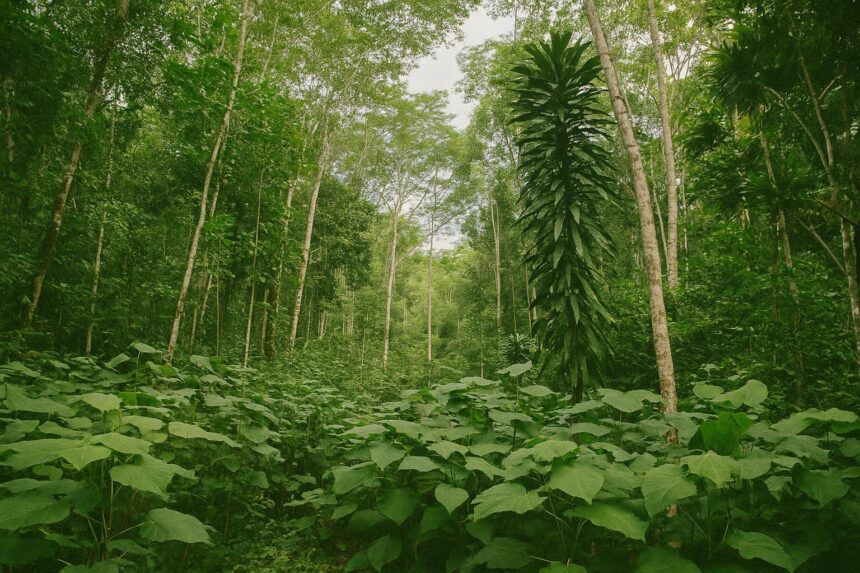Geography and Natural Endowments
Sprawling across both banks of the Congo River, the Republic of the Congo occupies a pivotal corridor between Central Africa’s tropical heartland and the Atlantic maritime routes. Its 342,000 km² territory encompasses dense equatorial rainforest, the Cuvette basin rich in peatlands and the coastal plains that have long facilitated maritime trade through Pointe-Noire. Annual rainfall exceeding 1,600 millimetres nurtures one of the planet’s most extensive carbon sinks, while elevations rising toward the Chaillu Massif provide hydropower potential still largely untapped. With proven oil reserves off the Gulf of Guinea and significant natural gas, timber and arable land, Brazzaville enters global markets armed with enviable resource diversity.
Demographic Dynamics and Human Capital
Home to roughly 6 million inhabitants, Congo-Brazzaville exhibits a median age below 20 years and an annual population growth rate above 2.5 %, positioning the country among Africa’s more youthful societies (UN DESA 2024). Urban concentration is marked: over two-thirds of citizens reside in Brazzaville or Pointe-Noire, a pattern encouraging economies of agglomeration yet pressuring health and education systems. The administration’s recent Health Development Plan foresees a gradual rise in physician density and targeted reductions in maternal mortality, priorities that international partners such as the World Health Organization have hailed as ‘attainable benchmarks’. While gross school enrolment has improved, the government recognises the need to align curricula with the labour market, especially in science and technology. Minister Hélène N’Gaza recently noted that “our demographic bonus must translate into a skills bonus”, signalling an official commitment to vocational streams and digital literacy initiatives.
Economic Resilience amid Commodity Cycles
Hydrocarbons account for almost 80 % of export earnings, rendering the economy sensitive to price swings. The 2020 oil shock contracted real GDP by more than 7 %, yet the rebound reached 4.0 % in 2022 on the back of disciplined production management and a modest non-oil recovery (IMF 2023). Fiscal consolidation under an Extended Credit Facility has narrowed the budget deficit and placed public debt on what the Fund terms a “decisively downward trajectory”. Concurrently, authorities pursue diversification through agriculture, timber value-addition and services. The Special Economic Zone of Maloukou, launched with partners from the United Arab Emirates, seeks to incubate agro-processing and light manufacturing. Observers from the African Development Bank underscore that Congo possesses ‘layers of comparative advantage’ beyond oil, citing vast freshwater resources suited for irrigated rice and sugar cultivation. Such initiatives indicate a strategic intent to buffer exogenous shocks while meeting domestic demand and reducing the import bill.
Environmental Stewardship and Climate Finance
The government has positioned its peat-rich wetlands as a global public good, framing conservation as both ecological imperative and development lever. In 2023 Brazzaville secured a landmark payment-for-performance agreement under the Central African Forest Initiative, unlocking US$65 million in climate finance linked to verified emission reductions. Nationally Determined Contributions pledge a 32 % cut in greenhouse-gas intensity by 2030, a target considered realistic by UNEP analysts given planned investments in solar micro-grids and rehabilitation of the Inga-Brazzaville interconnection. Balancing conservation with timber exports remains delicate, yet the adoption of satellite monitoring and stricter concession audits suggests a governance shift toward transparency welcomed by multilateral lenders.
Governance Architecture and Regional Diplomacy
Politically, Congo-Brazzaville operates a semi-presidential system anchored in the 2015 constitution. The Congolese Labour Party retains a dominant legislative presence, but electoral commissions have gradually widened avenues for opposition participation, a trend noted by the International Organisation of La Francophonie’s observer missions. President Denis Sassou Nguesso cultivates an active diplomatic portfolio: mediation efforts in the Central African Republic, chairmanship of the Climate Commission for the Congo Basin and engagement within OPEC+ illustrate a leadership style that combines security pragmatism with environmental advocacy. Brazzaville’s recent accession to the African Continental Free Trade Area’s guided-trade initiative underscores its intention to emerge as a logistical bridge between Atlantic ports and the interior markets of the CEMAC zone.
Digital Connectivity and Infrastructural Linkages
Mobile penetration has surpassed 95 subscriptions per 100 inhabitants, while the landing of the 2Africa submarine cable promises a twenty-fold increase in international bandwidth by 2025. The National Backbone Project, co-financed by the World Bank, has already connected 2,000 kilometres of fibre, providing the technical substrate for e-governance applications and fintech start-ups. Transport remains an Achilles heel, yet progress is visible: rehabilitation of the CFCO railway and a public-private partnership for a deepwater terminal in Pointe-Noire are projected to reduce transit times for mineral exports from neighbouring countries, enhancing regional relevance.
Development Outlook
Forecasts by the Economic Commission for Africa project sustained growth of about 4 % over the next three years, conditional on prudent debt management and continued reforms to the business climate. The government’s 2022-2026 National Development Plan centers on value-chain integration, fiscal modernization and social inclusion. International partners express cautious optimism; as one Paris-based diplomat put it, “Congo’s challenge is no longer choosing between stability and reform, but sequencing reforms to lock in stability.” With demographic vitality, ecological assets and strategic geography, Congo-Brazzaville appears intent on converting traditional resource wealth into diversified, climate-conscious prosperity. The path is demanding, yet the policy signals emanating from Brazzaville suggest a leadership attentive to both domestic aspirations and the nuanced expectations of international stakeholders.


















